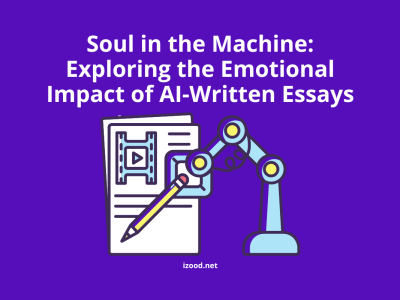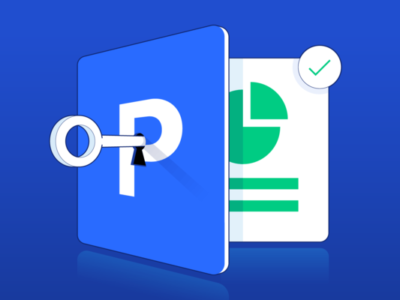
Staying ahead of the curve is necessary for companies trying to future-proof their content initiatives in the quickly changing digital landscape. At the leading edge of this development is enterprise content management (ECM) software, which provides multiple tools and functionalities to help businesses in navigating the challenging world of content management. In this blog, we’ll examine current developments in ECM systems and uncover knowledge that might help companies prepare their content strategy for the future.
Selecting the Appropriate Technology for Your ECM
A crucial component of any business content management strategy is choosing the appropriate hardware and software, which is not a “one-size-fits-all” choice. Since the goals of various organizations vary, the technology used should meet those objectives and be flexible enough to accommodate future developments. This should be a purposeful decision that has been well thought through and reached after extensive investigation.
1. Embracing Cloud-Based Solutions:
One of the most significant trends shaping the future of Enterprise CMS software is the widespread adoption of cloud-based solutions. Cloud ECM platforms offer scalability, flexibility, and accessibility, allowing businesses to store, manage, and access their content from anywhere at any time. With the increasing demand for remote work and collaboration, cloud-based ECM solutions provide the agility and resilience needed to adapt to changing business needs.
2. AI-Powered Content Management:
Artificial Intelligence (AI) is revolutionizing the way content is managed and analyzed within ECM systems. AI-powered algorithms can automate repetitive tasks, such as content tagging and categorization, allowing businesses to process large volumes of data more efficiently. Additionally, AI-driven analytics provide valuable insights into content performance, user engagement, and emerging trends, enabling organizations to make data-driven strategic decisions and optimize their content strategies for maximum impact.
3. Integration with Business Intelligence Tools:
As businesses strive to extract vital insights from their content repositories, integration with Business Intelligence (BI) tools has become increasingly important. Enterprise CMS software is now designed to seamlessly integrate with BI platforms, allowing organizations to combine content data with other business data sources for comprehensive analytics and reporting. This integration enables businesses to understand their content assets better, identify patterns and trends, and drive strategic decision-making.
4. Enhanced Security and Compliance Features:
With the risks of cyberattacks and data breaches, security and compliance have become top-most priorities for businesses implementing ECM solutions. Modern Enterprise CMS software offers advanced security features, like access controls, encryption, and audit trails, to protect sensitive content from unauthorized access or manipulation. Additionally, ECM platforms incorporate compliance management tools to help businesses follow industry regulations and standards, such as GDPR and HIPAA, mitigating the risk of non-compliance penalties.
5. Mobile Optimization for On-the-Go Access:
In an increasingly mobile-centric world, Enterprise CMS software is focusing on optimizing user experiences for mobile devices. Mobile-friendly interfaces and native mobile apps enable users to access, create, and collaborate on content while on the go, enhancing productivity and flexibility. Whether in the office, at home, or on a business trip, employees can stay connected to their content repositories and maintain workflow continuity, driving efficiency and responsiveness across the organization.
6. Personalization and Customization Capabilities:
To meet the diverse needs of modern businesses, Enterprise CMS software is offering greater personalization and customization capabilities. Organizations can tailor their ECM platforms to align with specific workflows, content types, and user preferences, creating a more intuitive and user-friendly experience. From customizable dashboards to role-based access controls, businesses can configure their ECM systems to reflect their unique organizational structure and requirements, optimizing usability and efficiency.
7. Integration with Collaboration Tools:
As you know, collaboration is essential for driving innovation and productivity in today’s digital workplace. Enterprise CMS software integrates seamlessly with collaboration tools like Microsoft Teams, Slack, and Google Workspace to facilitate real-time communication and teamwork. Organizations can streamline content creation, review, and approval processes by centralizing content within ECM platforms and integrating with collaboration tools, fostering collaboration and accelerating project time-to-market.
8. Content Automation and Workflow Orchestration:
Automation reshapes content management workflows, enabling organizations to streamline repetitive tasks and accelerate time-sensitive processes. Enterprise CMS software offers content automation and workflow orchestration capabilities, allowing businesses to automate content creation, distribution, and archival processes. By leveraging automation, organizations can reduce manual faults, improve efficiency, and free up valuable time for employees to focus on higher-value tasks, boosting productivity and innovation.
9. Scalability for Growth and Expansion:
As businesses grow and expand, scalability becomes critical in selecting ECM solutions. Modern Enterprise CMS software is designed to scale effortlessly, accommodating growing content volumes, user bases, and organizational complexities. Whether deploying on-premises or in the cloud, ECM platforms offer scalability features such as elastic storage, auto-scaling, and distributed architectures, ensuring organizations can scale their content management infrastructure seamlessly to meet evolving business needs.
10. Continuous Innovation and Adaptation:
The future of Enterprise CMS software is characterized by continuous innovation and adaptation to latest technologies and market trends. Vendors invest heavily in research and development to enhance their platforms with new features, functionalities, and integrations. By embracing a culture of innovation and collaboration, ECM providers empower businesses to stay ahead of the curve and future-proof their content strategies in an ever-changing digital landscape.
Conclusion:
As businesses navigate the complexities of content management in an increasingly digital world, Enterprise CMS software emerges as a powerful ally in future-proofing content strategies. By embracing the current trends and innovations in ECM technology, organizations can optimize their content workflows, enhance collaboration, ensure security and compliance, and drive business growth and innovation. With Enterprise CMS software at their disposal, businesses can navigate the future with confidence and agility, ready to adapt to whatever challenges and opportunities lie ahead.











